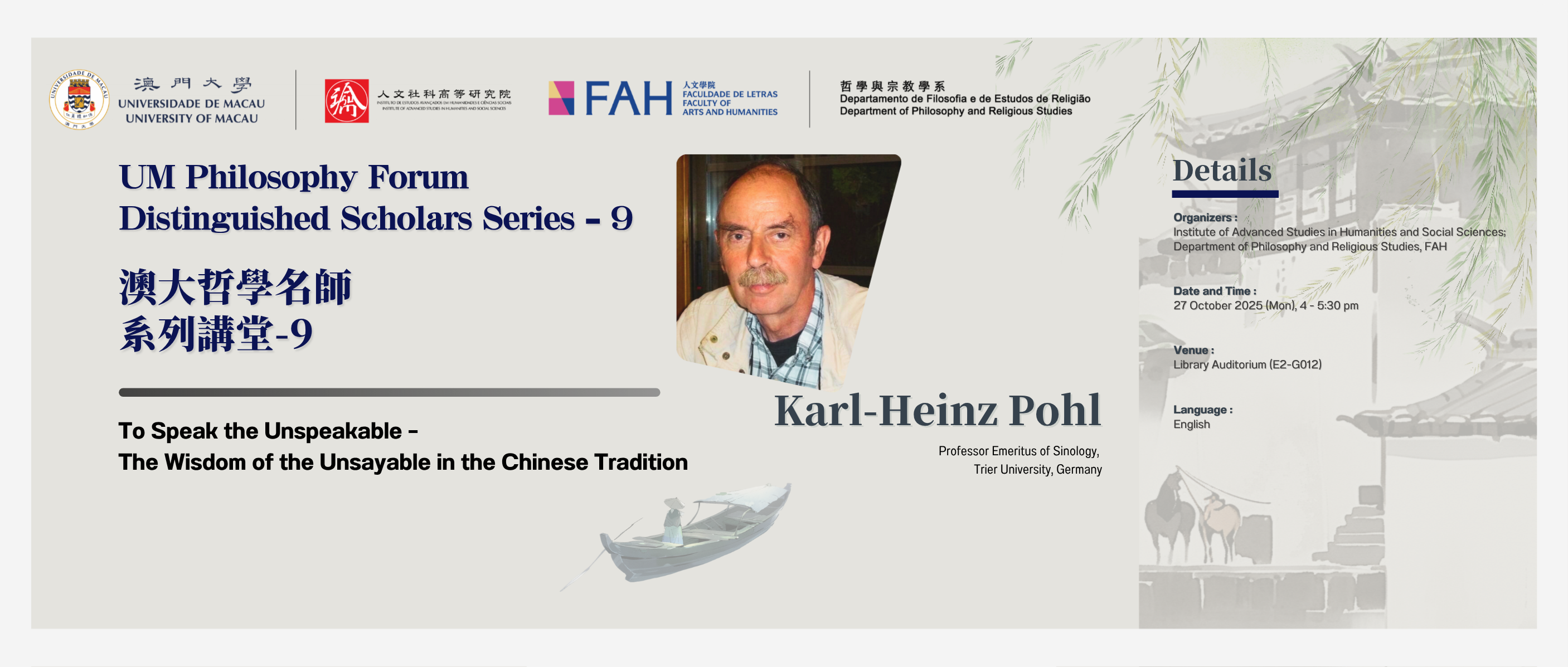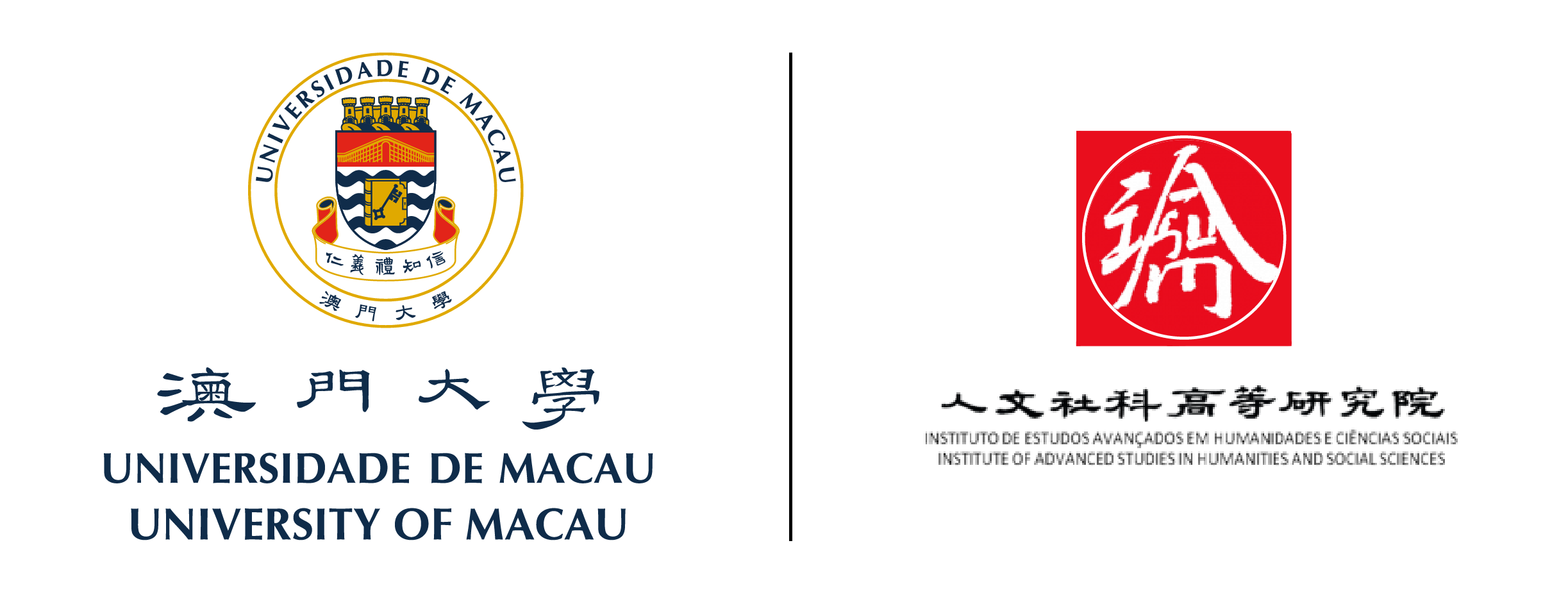
The UM Philosophy Forum Distinguished Scholars Series 9, co-organised by the Institute of Advanced Studies in Humanities and Social Sciences (IAS) and the Department of Philosophy and Religious Studies of the Faculty of Arts and Humanities (FAH), was successfully held on 27 October 2025 at the Library Auditorium (E2-G012), University of Macau. Professor Karl-Heinz Pohl, Professor Emeritus of Sinology at Trier University, Germany, delivered a thought-provoking lecture titled “To Speak the Unspeakable – The Wisdom of the Unsayable in the Chinese Tradition.” “Professor Xiangchen Sun, Professor of the School of Philosophy and Head of the Division of Humanities at Fudan University, and Professor Ellen Zhang, Professor in the Department of Philosophy and Religious Studies at the Faculty of Arts and Humanities, served as discussants. Meanwhile, Professor Shaoyang Lin, Head of Academic Programme and Publication at IAS and Distinguished Professor in the Department of History at the Faculty of Arts and Humanities, acted as the moderator.
At the beginning of the lecture, Professor Pohl explored the philosophical paradox of “speaking the unspeakable,” exploring the philosophical paradox of language and wisdom, and examining how Western and Chinese thought traditions understand the ‘limits of speech.’ He first reviewed the intellectual lineage of Western philosophy tracing it from Plato to Wittgenstein as he noted that the ‘unspeakable’ reveals not only the boundaries of reason but also the dimensions of wisdom that transcend language.
Subsequently, Professor Pohl turned to the Chinese philosophical tradition, focusing on the Daoist and Buddhist perspectives on the “unsayable.” Drawing upon texts such as the Daodejing and Zhuangzi, as well as the Diamond Sutra and Vimalakīrti Sutra, pointing out that Chinese thought tends to reveal truth through implicit, suggestive, and poetic expressions, emphasising the aesthetic and philosophical values of ‘meaning beyond words’ and ‘the realm of the unspoken.’ He argued that this ‘aesthetics of the unspeakable’ is not a mere absence of language but a higher manifestation of wisdom, conveying intuitive insights through silence and symbolism.
The lecture also extended to discuss how this mode of expression shaped Chinese culture, particularly in calligraphy, poetry, and painting, where the space between words and images carries profound meaning. Professor Pohl indicated that understanding the wisdom of the ‘unspeakable’ has enlightening implications for contemporary cross-cultural dialogue, ethical reflection, and even communication in the digital age.
During the discussion session, Professor Sun compared Western philosophy’s pursuit of definition with the emphasis in Chinese thought on humility, imagery, and relational understanding. Professor Pohl responded by outlining that Confucianism, Daoism, and Buddhism each possess distinct philosophical orientations, and that Buddhism’s development in China exemplifies a creative cultural transformation. Professor Zhang Ying connected the theme of the ‘unspeakable’ with ‘negative theology,’ noting that the tension between silence and speech presents different intellectual meanings in Christianity, Daoism, and Buddhism.
The event attracted enthusiastic participation from scholars and students across various disciplines, with lively on-site discussions. IAS will continue to organise its “UM Philosophy Forum Distinguished Scholars Series” to foster dialogue among different philosophical traditions and to broaden academic horizons and international exchanges in the humanities and social sciences.








